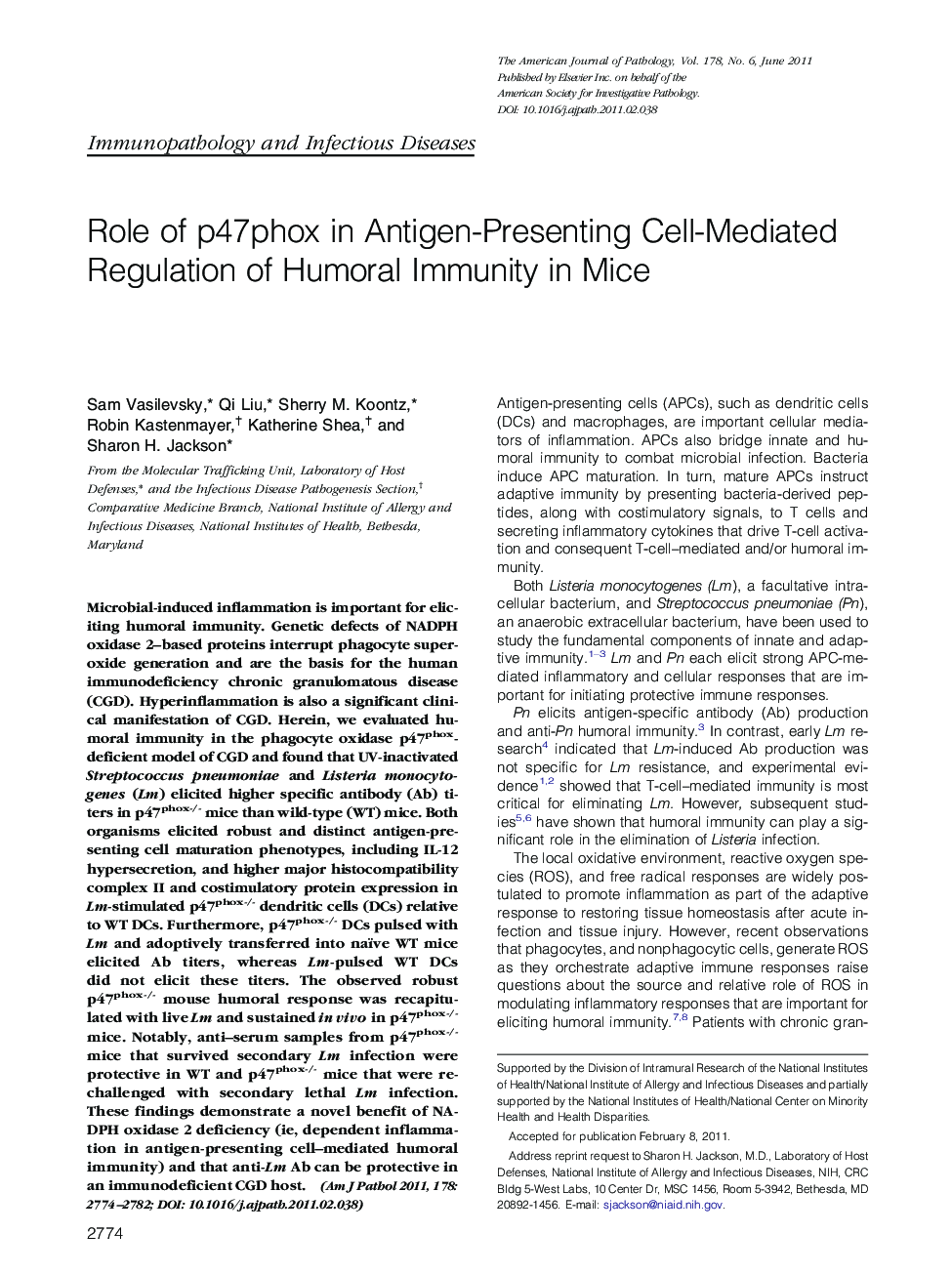| Article ID | Journal | Published Year | Pages | File Type |
|---|---|---|---|---|
| 5939521 | The American Journal of Pathology | 2011 | 9 Pages |
Abstract
Microbial-induced inflammation is important for eliciting humoral immunity. Genetic defects of NADPH oxidase 2-based proteins interrupt phagocyte superoxide generation and are the basis for the human immunodeficiency chronic granulomatous disease (CGD). Hyperinflammation is also a significant clinical manifestation of CGD. Herein, we evaluated humoral immunity in the phagocyte oxidase p47phox-deficient model of CGD and found that UV-inactivated Streptococcus pneumoniae and Listeria monocytogenes (Lm) elicited higher specific antibody (Ab) titers in p47phox-/- mice than wild-type (WT) mice. Both organisms elicited robust and distinct antigen-presenting cell maturation phenotypes, including IL-12 hypersecretion, and higher major histocompatibility complex II and costimulatory protein expression in Lm-stimulated p47phox-/- dendritic cells (DCs) relative to WT DCs. Furthermore, p47phox-/- DCs pulsed with Lm and adoptively transferred into naïve WT mice elicited Ab titers, whereas Lm-pulsed WT DCs did not elicit these titers. The observed robust p47phox-/- mouse humoral response was recapitulated with live Lm and sustained in vivo in p47phox-/- mice. Notably, anti-serum samples from p47phox-/- mice that survived secondary Lm infection were protective in WT and p47phox-/- mice that were rechallenged with secondary lethal Lm infection. These findings demonstrate a novel benefit of NADPH oxidase 2 deficiency (ie, dependent inflammation in antigen-presenting cell-mediated humoral immunity) and that anti-Lm Ab can be protective in an immunodeficient CGD host.
Related Topics
Health Sciences
Medicine and Dentistry
Cardiology and Cardiovascular Medicine
Authors
Sam Vasilevsky, Qi Liu, Sherry M. Koontz, Robin Kastenmayer, Katherine Shea, Sharon H. Jackson,
